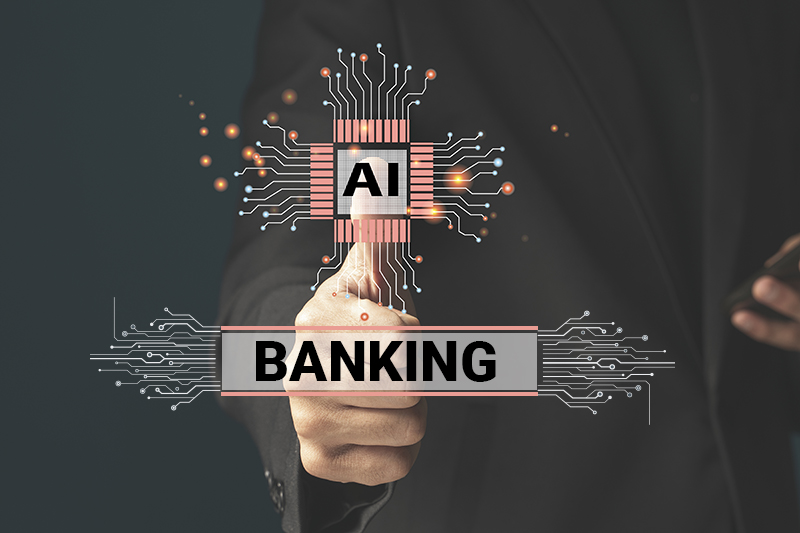Currently, artificial intelligence (AI) has become a trending and sophisticated technology that is widely used to improve business processes across all industries. The Banking and finance sector is no exception in this regard. The strategic application of AI’s many technologies including machine learning, natural language processing and computer vision can drive meaningful results for banks.
These include -enhancing customer support, minimizing operational costs, reducing error rates, processing automation, improving back-office operations and working under existing regulatory compliances. Besides, AI in banking also helps users to select loan amounts at an attractive interest rate. However, there is no AI without data.
As data is the core of AI algorithm, banks need accurate data to leverage AI, analytics and machine learning tools. Typically, bank data includes that related to large number of business transactions, and records that need to be accessed for various banking functions. Outsourcing services can help banks ensure data accuracy and get their data infrastructure ready for the best utilization of AI document management and processing.
Significance of AI in the Banking Industry
According to a study by Accenture, banks can leverage AI Banking tools to increase their transactions by two and half times using the same headcount. In fact, the use of artificial intelligence in banking accelerates digitization in end-to-end banking and finance processes. By incorporating the huge power of data analytics, intelligent ML algorithms, and secure in-app integrations, AI applications help optimize service quality and enables banks to identify and combat false transactions.
Nearly 40 to 50 percent of financial and banking service providers are estimated to be using AI in their processes. AI is the future of banking sector which help perform a wide range of operations in a more fast and secure manner. In fact, the value of digital banking services increases with several tools like machine learning, predictive analytics, and voice recognition.
Significant Applications of AI in the Banking Industry
The uses of artificial intelligence and machine learning in the banking and finance industry are many. It provides an opportunity for financial institutions to create a friendly customer experience, reduce error rates by employees, and make better investments.
Intelligent Decision Management Systems (DMS) helps the institution remain compliant by cutting down error rates and reducing time spent capturing customer information accurately. In addition, AI is responsible for detecting suspicious credit card activity. With identity theft on the rise, the industry needs to employ the right technology to protect its customers and mitigate its liability. Here discussed are some of the top applications of AI in the banking industry.
- Enhances Customer Experience – Customers are constantly looking for convenience and AI banking apps can do wonders in this regard. Implementation of AI mobile banking apps can help track user behavior and deliver highly personalized services to customers. Intelligent mobile apps using ML algorithms can monitor user behavior and derive valuable insights based on user search patterns.
These insights would help service providers offer personalized recommendations to end-users. In the quest for a shorter turnaround time, a decision management system (DMS) can reduce the time it takes to capture KYC information and eliminate errors. In addition, with proper business rules software, business decisions can be implemented effectively without any lengthy procedures.
- AI Chatbots – Use of conversational assistants or chatbots is one of the best benefits of AI in the banking industry. AI chatbots in banking are modernizing the way businesses provide services to their customers, offering a personalized experience to users, AI chatbots assist customers 24/7 and give accurate responses to their queries. Customers have become increasingly comfortable using this software program to answer questions and handle many standard banking tasks that previously involved person-to-person interaction. In short, AI chatbots for banking and finance operations let banks attract customer attention, optimize service quality, and expand the brand mark in the market.
- Data Collection and Analysis – AI in banking can efficiently perform data collection and analysis processes. AI machines process massive data sets and extract valuable insights into data. This analysis will help banks to easily predict the market trends. In addition, customer data analysis through AI-powered mobile banking apps will help deliver personalized services and enhance the overall user experience.
- Accelerate Automation Process – The use of AI in banking will accelerate automation and make the process seamless. AI software helps banks streamline and automate every task performed manually by humans. This makes the whole process simple and virtual. AI applications can reduce the workload of bankers and optimize the quality of work. Through customized AI banking apps and AI Chatbot services, users can request service at any time and get accurate responses from AI virtual banking assistants.
- Portfolio Management – Wealth and portfolio management can be done effectively with artificial intelligence. AI technology can manage banking services and strengthen mobile banking operations. It can assist those users who cannot visit the banks frequently. On remitting money through digital banking apps, AI apps will track and send immediate transaction alerts to the users. If any suspicious transactions are detected, AI machines immediately alert the user. AI Solutions can automate the credit and debit card management system and make the process safer. Artificial intelligence technology in banking eases the card authentication process and makes transactions safe and secure.
- Risk Management – Document verification, analyzing the financial status of customers and sanctioning loans on that basis can be challenging for bankers. AI and machine learning in banking can manage this task with more accuracy and privacy. AI-based mobile banking applications analyze the financial data of the borrower. By using the AI-driven risk assessment process, bankers can analyze the borrower’s behavior and thus reduce the possibility of fraud. In addition, it could also help bankers identify the amount of risk in giving loans to customers.
- Regulatory Compliance and Fraud Detection – Banks have to comply with a number of regulations that require them to know about the customers, uphold customer privacy, monitor wire transfers, prevent money laundering and other fraudulent activities, and so on. Banks use AI virtual assistants to monitor transactions, keep track of customer behavior, and audit and log information to various compliance and regulatory systems.
By analyzing customer behavior, AI-based systems help banks practice proactive regulatory compliance, while minimizing overall risk. Using a DMS (Decision Management System) allows for early fraud detection and comprehensive audit documentation. With the right software and machine learning, information captured in the system will be accurate and errors can be highlighted immediately.
For many banks, ensuring adoption of AI technologies across the enterprise is no longer a choice, but a strategic imperative. In fact, the strategic deployment of AI’s many technologies in banking and finance – including machine learning, natural language processing and computer vision can bring substantial benefits. These include improving employee and customer experiences, improving back-office operations, reducing operational costs and detecting fraudulent activities.
Experienced, reputable business process outsourcing companies can help banks implement AI technology in an efficient manner thereby improving banking operations.




